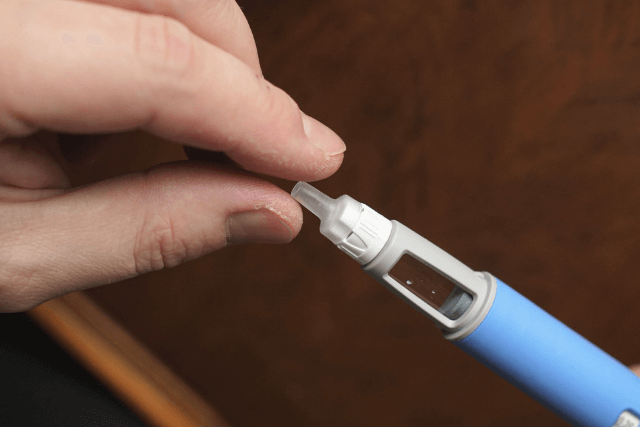Achieving and maintaining weight loss can feel overwhelming, but it’s not impossible. Many people struggle with losing weight or keeping it off long term. However, with a solid plan and the right tools, sustainable weight loss is within reach.
In this guide, we’ll explore strategies for weight loss and maintenance while also focusing on professional medical options such as bariatric surgery and medical weight loss procedures that can make a significant difference for those who need extra support.
What Is Weight Loss and Maintenance?
Weight loss and maintenance are two sides of the same coin. While the first focuses on reducing excess body fat, the latter involves maintaining a healthy weight over the long term. Effective weight loss requires commitment, understanding the right strategies, and choosing methods that promote lasting results. Maintaining your weight afterward means continuing with those healthy habits so you don’t fall back into old patterns.
The Importance of Setting Realistic Goals
One key to weight loss and maintenance is setting achievable and realistic goals. Many people expect quick results, but sustainable weight loss happens over time. Start with small, manageable goals like losing 1-2 pounds per week instead of aiming for rapid, extreme weight loss. This approach is healthier and ensures that your weight loss is sustainable.
Healthy Eating Habits for Long-Term Weight Loss
A balanced, nutritious diet is the cornerstone of weight loss and maintenance. Healthy eating doesn’t have to be restrictive, but it should focus on whole, nutrient-dense foods that fuel your body and promote healthy weight management.
1. Focus on Portion Control
Portion control plays a significant role in weight loss and maintaining a healthy weight. Even healthy foods can lead to weight gain if eaten in large quantities. Use smaller plates, measure your food, and listen to your body’s hunger cues.
2. Choose Whole, Unprocessed Foods
Opt for vegetables, fruits, lean proteins, and whole grains over processed foods high in sugars and unhealthy fats. In addition, whole foods are packed with nutrients that keep you full longer and help regulate your metabolism.
3. Drink Plenty of Water
Water is essential for metabolism and digestion. Staying hydrated can help with appetite control and prevent overeating. Drink water throughout the day, especially before meals, to help curb your appetite.
The Role of Exercise in Weight Loss and Maintenance
Exercise plays a vital role in both weight loss and maintenance. While diet is crucial, physical activity helps burn calories, increases metabolism, and supports overall health.
1. Mix Cardio with Strength Training
Cardiovascular exercises like walking, jogging, or swimming are effective for burning calories. However, incorporating strength training into your routine is essential for building muscle, which boosts metabolism and aids in maintaining a healthy weight.
2. Find Activities You Enjoy
To stay consistent, choose activities that you genuinely enjoy. Whether it’s dancing, hiking, or cycling, enjoying your exercise routine will make it easier to stick with it long term.
Getting the Right Sleep and Managing Stress
Poor sleep and high stress can hinder weight loss and maintenance. Insufficient sleep disrupts metabolism and increases hunger, while stress can trigger emotional eating. Aim for 7-9 hours of sleep per night and practice stress management techniques like yoga, deep breathing, or meditation.
Building a Support System
A strong support system can greatly improve your chances of success. Whether it’s a friend, family member, or a support group, having people to encourage you can make all the difference.
- Accountability Partners: Find someone who will help keep you on track and motivated.
- Join a Support Group: Many people find that sharing their experiences with others in similar situations helps them stay focused and positive. In addition, it provides a sense of community and support, which can further motivate them to stay on track.
Overcoming Weight Loss Plateaus
It’s common to hit a weight loss plateau after an initial period of progress. When this happens, don’t get discouraged. Instead, try changing your routine, whether it’s adjusting your diet, increasing your exercise intensity, or trying a different approach altogether.
Weight Maintenance Tips
Once you’ve achieved your weight loss goals, the next step is to maintain them. Weight loss and maintenance are lifelong commitments, so it’s important to continue healthy habits even after reaching your target weight.
1. Keep Tracking Your Progress
Even after reaching your goal, still track your food, exercise, and weight. Additionally, this will help you stay mindful of your habits and prevent slipping back into old patterns.
2. Regularly Update Your Goals
As your body changes, so should your goals. Keep challenging yourself with new fitness targets, or focus on maintaining a balanced lifestyle rather than just losing weight.

Medical Support: Bariatric Surgery and Medical Weight Loss Procedures
For those who have struggled to lose weight through traditional methods, medical weight loss procedures and bariatric surgery can provide significant help. In addition, at IBI Healthcare, we offer a range of procedures specifically designed to assist with both weight loss and maintenance. Furthermore, our team provides personalized support to ensure long-term success. Moreover, these procedures are tailored to meet your unique needs, helping you achieve lasting results.
Types of Bariatric Surgery Offered at IBI Healthcare
Bariatric surgery involves surgical procedures designed to help individuals with obesity lose weight by making changes to the stomach or digestive system. These surgeries are often recommended for individuals who have a BMI of 40 or higher, or 35 with related health issues like diabetes or sleep apnea.
Here are the main types of bariatric surgery we provide at IBI Healthcare:
Gastric Bypass Surgery
Gastric bypass surgery involves creating a small pouch at the top of the stomach and connecting it directly to the small intestine. As a result, this reduces the amount of food the stomach can hold and limits calorie absorption.
Benefits:
- Significant long-term weight loss
- Helps treat obesity-related conditions like type 2 diabetes and hypertension
- Combines restriction and malabsorption
Ideal Candidates: Individuals with a BMI of 40 or higher, or a BMI of 35 or higher with obesity-related health issues.
Laparoscopic Sleeve Gastrectomy
This procedure removes a large portion of the stomach, leaving a tube-like “sleeve.” This limits the amount of food you can eat and helps you feel fuller faster.
Benefits:
- Rapid weight loss in the first 12-18 months
- No rerouting of intestines
- Lower risk of complications
Ideal Candidates: Individuals with a BMI of 40 or higher or a BMI of 35 with health issues.
Endoscopic Sleeve Gastroplasty (ESG)
ESG uses an endoscopic tool to reduce the size of the stomach by stitching it into a smaller sleeve-like shape. As a result, this procedure is minimally invasive and has a short recovery time.
Benefits:
- No incisions required
- Effective for those who don’t want traditional surgery
Ideal Candidates: Patients with a BMI of 30 to 40.
Gastric Balloon
A non-surgical procedure that involves placing an inflatable balloon inside the stomach. The balloon, therefore, helps you feel full with smaller amounts of food.
OBERA Balloon: Remains in the stomach for about six months to reduce food intake.
SPATZ Balloon: Adjustable and stays for up to 12 months, thus offering long-term support.
Benefits:
- Non-invasive
- Ideal for jumpstarting weight loss
Both options are ideal for individuals with a BMI of 30 to 40 looking to lose weight without surgery. Schedule a consultation at IBI Healthcare to find the right choice for you.
Laparoscopic Adjustable Gastric Band (Lap Band)
A band is placed around the upper part of the stomach, creating a small pouch. The band can be adjusted accordingly to control the amount of food you eat.
Benefits:
- Adjustable to suit changing eating habits
- Less invasive than other procedures
Ideal Candidates: Those with a BMI of 35 or higher.
Mini Gastric Bypass
A simplified version of gastric bypass surgery, therefore, this procedure involves creating a small stomach pouch and bypassing part of the small intestine.
Benefits:
- Shorter surgery time
- Long-term weight loss
Ideal Candidates: Patients with a BMI of 40 or higher.
Laparoscopic Duodenal Switch (LDS)
LDS is a complex weight loss surgery that combines restrictive and malabsorptive techniques. Specifically, it involves removing a portion of the stomach and rerouting the intestines to reduce calorie absorption.
Single Anastomosis Duodenal Ileal Bypass (SADI)
This variation of the duodenal switch procedure offers a less complex approach to weight loss. It involves fewer reroutings of the intestines, making it a simpler and less invasive option compared to other surgeries while still offering significant weight loss benefits.
Benefits:
- Less complex than traditional duodenal switch
- Effective for significant weight loss
- Reduces calorie absorption
Ideal Candidates: Patients with a BMI of 40 or higher, or 35 with obesity-related conditions.
Single Anastomosis Sleeve Ileal Bypass (SASI)
SASI combines the gastric sleeve procedure with a modified intestinal bypass, offering a dual approach for long-term weight loss. It helps control calorie intake and supports significant weight reduction while maintaining essential nutrient absorption.
Benefits:
- Dual approach for effective weight loss
- Preserves nutrient absorption
Ideal Candidates: Patients who want a procedure combining the benefits of gastric sleeve and intestinal bypass.
OverStitch Gastric Bypass Revision
This procedure is for individuals who have regained weight after gastric bypass surgery. Specifically, it tightens the stomach pouch to restore weight loss effectiveness.
Benefits:
- Helps correct weight regain post-bypass surgery
- Restores weight loss success
Ideal Candidates: Individuals who have undergone gastric bypass but have experienced weight regain.

Medical Weight Loss Options at IBI Healthcare
At IBI Healthcare, we offer medical weight loss options that don’t involve surgery. Specifically, these programs are personalized and include prescription medications, tailored nutrition plans, and medical supervision.
Prescription Medications:We offer medications like TIRZEPATIDE (MOUNJARO®) and semaglutide. Specifically, these medications help reduce appetite and support weight loss by altering how your body processes fat.
Medical Supervision: Our healthcare team works closely with you to create a safe and effective weight loss plan that’s designed to meet your individual needs.
These options provide a non-surgical approach to achieving lasting weight loss, therefore helping you take the next step towards a healthier lifestyle.
Conclusion
Weight loss and maintenance undoubtedly require dedication, consistency, and the right approach. Whether you achieve your goals through healthy eating habits, regular exercise, or medical support, there are multiple strategies available to help you succeed. Moreover, at IBI Healthcare, we offer a comprehensive range of bariatric surgery options and medical weight loss procedures to support your weight loss journey. Additionally, we provide ongoing care and guidance to help you maintain your hard-earned results.










